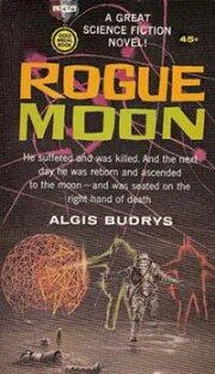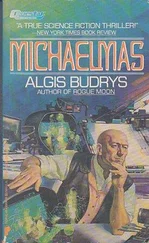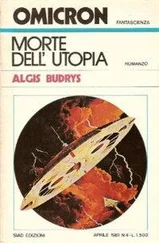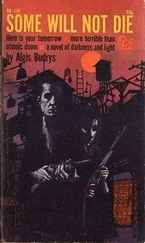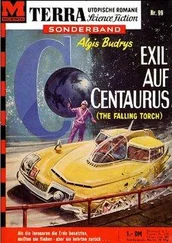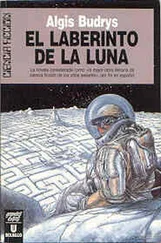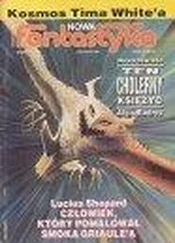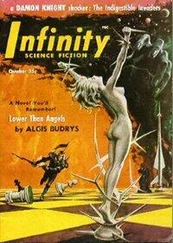“Mr. Reed,” Hawks said.
Reed stopped. “Yes?”
Hawks rubbed his face. “I appreciate your position. And I can see that what you’ve just proposed is completely reasonable, from that point of view. However—”
“All right, Hawks,” Cobey said drily. “Get to the ‘however.’ “
“Well,” Hawks said to Reed, “do you know the principles on which the scanner works — the duplicator?”
“Pretty roughly, I’m afraid,” Reed said patiently.
“Well, pretty roughly, the duplicator takes a piece of matter and reduces it to a systematic series of electron flows. Electricity. A signal, like the signal that comes out of a radio sending set. Now, that signal is fed into these components — the same way, you might say, that it came in from the antenna of a radio receiver and was passed into the circuit inside it. When it comes out the other end of the circuit, it doesn’t go into a loudspeaker but is retransmitted to the Moon, having meanwhile been cross-checked for its accuracy. Now that’s essentially what these components do — they inspect the signal for consistency. Now, the point is that the accuracy with which the original piece of matter is reconstructed — duplicated — depends on the consistency of the electron flows which arrive at the receiver. Therefore, if we were to use duplicated components to check the consistency of the signal with which we duplicate highly complicated objects, such as a living human being, we would be introducing an additional possibility for error which, in the case of a human being, works out higher than we can safely permit. Do you follow that?”
Reed frowned.
Cobey quirked his mouth up at one corner, looking down the table at Hawks.
Hedge picked up his cap and began adjusting the wire stiffening inside its white cover.
Finally, Reed said, “Is that all, Dr. Hawks?”
Hawks nodded.
Reed shrugged in embarrassment. “Well, look,” he said, “I’m afraid I still don’t see it. I can see that maybe your original equipment couldn’t be duplicated, because your scanner wouldn’t work without it, but—”
“Oh, it would work without it,” Hawks interjected. “As I said, it’s a control circuit. It’s not primary.”
Reed put his hands down sharply and looked at Cobey. He shook his head.
Cobey took a deep breath and let it out bitterly. “What do you say, Commander?”
Hedge put his cap down. “I think what Dr. Hawks means is that if you have an automatic lathe making automatic lathes, and you use these automatic lathes you’ve made to make more lathes, all it takes is for one part in any one of these lathes to slip, and pretty soon you’ve got a zillion lathes that’re just so much junk.”
“Well, God damn it, Hawks, why couldn’t you put it that way?” Cobey demanded.
The day the elapsed time reached nine minutes, thirty seconds, Hawks said to Barker, “I’m worried. If your elapsed time grows much longer, the contact between M and L will become too fragile. The navigating team tells me your reports are growing measurably less coherent.”
“Let ’em try going up there, then. See how much sense they can make out of it.” Barker licked his lips. His eyes were hollow.
“That’s not the point.”
“I know what the point is. There’s another point. You can stop worrying. I’m almost out the other side.”
“They didn’t tell me that,” Hawks said sharply.
“They don’t know. But I’ve got a feeling.”
“A feeling.”
“Doctor, all that chart shows is what I tell it after I’ve done a day’s work. It has no beginning and no end, except when I put the end to it.” He looked around the laboratory, his face bitter. “All this plumbing, Doctor, and in the end it comes down to all revolving around one man.” He looked at Hawks. “One man and what’s in his mind. Or maybe two of us. I don’t know. What’s in your mind, Hawks?”
Hawks looked at Barker. “I don’t pry into your mind, Barker. Don’t set foot in mine. I have a telephone call to make.”
He walked away across the laboratory, and dialed an outside number. He waited for the answer, and as he waited, he stared without focusing at the old, familiar blank wall. Suddenly he moved in a spasm of action and smashed the flat of his free hand violently against it. Then the buzz in the earpiece stopped with a click, and he said eagerly, “Hello? Elizabeth? This — this is Ed. Listen — Elizabeth — Oh, I’m all right. Busy. Listen — are you free tonight? It’s just that I’ve never taken you to dinner, or dancing, or anything Will you? I—” He smiled at the wall. “Thank you.” He hung up the telephone and walked away. He looked back over his shoulder, and saw that Barker had been watching him, and he started self-consciously.
“Elizabeth—” he began, and then waved his arm in annoyance. “No. It was all going to come out in a rush. It does, so often.”
They were standing atop an arm of rock that thrust out seaward into the surf. Hawks’ collar was turned up, and he held his jacket together with one hand. Elizabeth was wearing a coat, her hands in its pockets, a kerchief over her hair. The Moon, setting on the horizon, reflected its light upon the traceries of clouds overhead. Elizabeth smiled up at him, her wide mouth stretching. “This is a very romantic spot you’ve brought us to, Edward.”
“I — I was just driving. I didn’t have any particular place in mind.” He looked around. “I’m not full of cunning, Elizabeth — I’m full of logic, and reasoning, and God knows what else.” He smiled self-consciously. “Though I suspect the worst — but that almost always comes afterward. I say to myself, ‘Now, what am I doing here?’ and then I have to know the answer. No, I have things—” He clutched at the air. “Things I want to say. Tonight. No later.” He took a step forward, turned, and stood facing her, staring rigidly over her shoulder at the empty beach, the rise of the highway with his car parked on its shoulder, and the eastern sky beyond. “I don’t know what shape they’ll take. But they have to come out. If you’ll listen.”
“Please.”
He shook his head at her, then forced his hands into his hip pockets and kept his body rigid.
“You know — You know, during the war, the Germans refused to believe microwave radar was practical. Their submarines were equipped with radar search receivers, to detect antisubmarine radar in use. But they only received comparatively long wave lengths. When we put microwave radar on our patrol planes and convoy escorts, we began picking them off at night, when they surfaced to charge their batteries. But, before that, in the early part of the war, we had to get hold of one of their receivers, so we could determine their limitations. As it happened, I was given one to work on. A destroyer’s boarding party had managed to recover one from a submarine that had been depth-charged and forced to the surface, and then shelled. Our people ripped the set out just before the submarine sank. The receiver was sent on to the laboratory where I was, by special courier plane from an escort carrier, and then by car. I had it within twelve hours.
“Well, I put it down on my workbench and looked at it. The case was torn up by shrapnel, waterlogged… and terribly stained. There was smoke, there was oil, salt water corrosion, chemical fume contamination from the shellbursts — You know. And there were other kinds of debris on it. But I was a bright young man in those days, with a few commendations and my Reserve commission, and full of being a boy wonder—” Hawks grimaced. “I looked at the case, and in my mind, I said something spritely to myself on the order of, ‘Hmm, shouldn’t be too much trouble unravelling this. Just get some of this mess off the surface and—’ And so forth. And all that time, the diluted blood I could see dried out in a smudge around the largest hole was just another part of the ‘mess.’ Some seaman, I thought to myself, very professionally, never having been to sea, some seaman was standing near it when the shells hit the conning tower. But when I pried the sheet-metal casing away, Elizabeth, there was a human heart in there, Elizabeth — in among the tubes and the wires.”
Читать дальше
